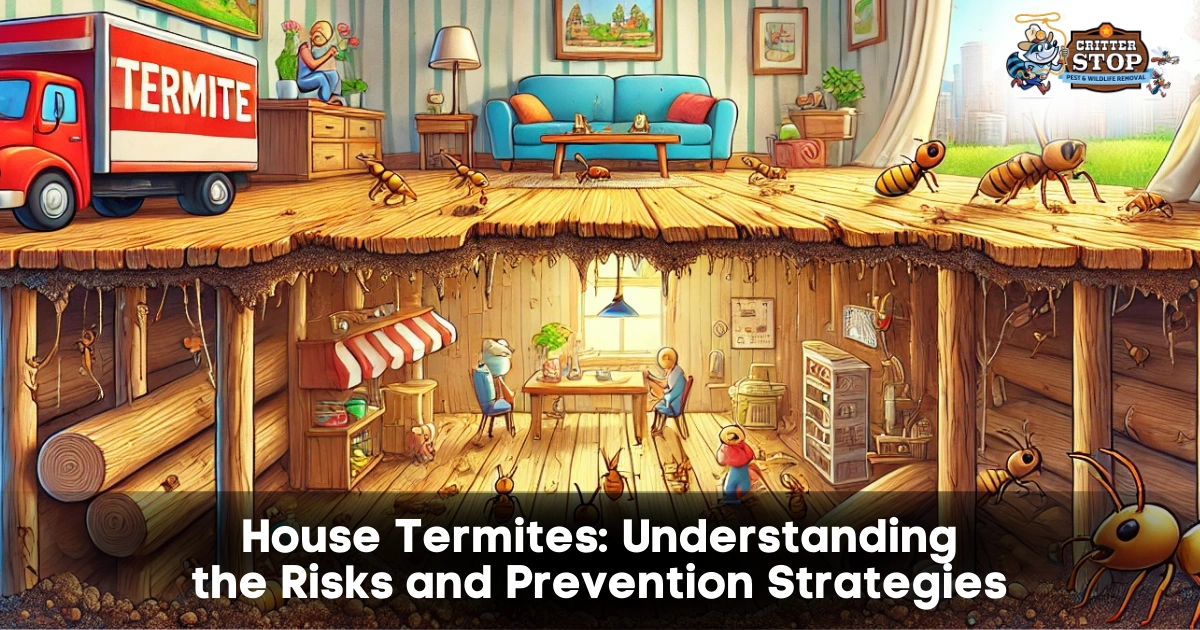
House termites are often referred to as silent destroyers due to their ability to inflict significant damage over time, often without being noticed until it's too late. These pests can compromise the structural integrity of homes by feeding on wood, which may lead to severe consequences if not addressed promptly. Understanding their behavior and the signs of an infestation can empower homeowners to take proactive measures.
Termites thrive in environments where moisture is present, making certain areas of a house particularly vulnerable. They can consume wood from the inside out, meaning visible damage may not be apparent until extensive harm has been done. If you see termites in your house, it's crucial to act fast to minimize damage. Homeowners should be vigilant, as early detection is key to preventing costly repairs.
Recognizing the risks termites pose is essential for maintaining a safe and sound home. By learning about their habits and the potential damage they cause, individuals can better protect their properties and act swiftly at the first sign of an infestation. But what do termites do to your house? They weaken wooden structures by creating hollow tunnels, eventually leading to major structural issues.
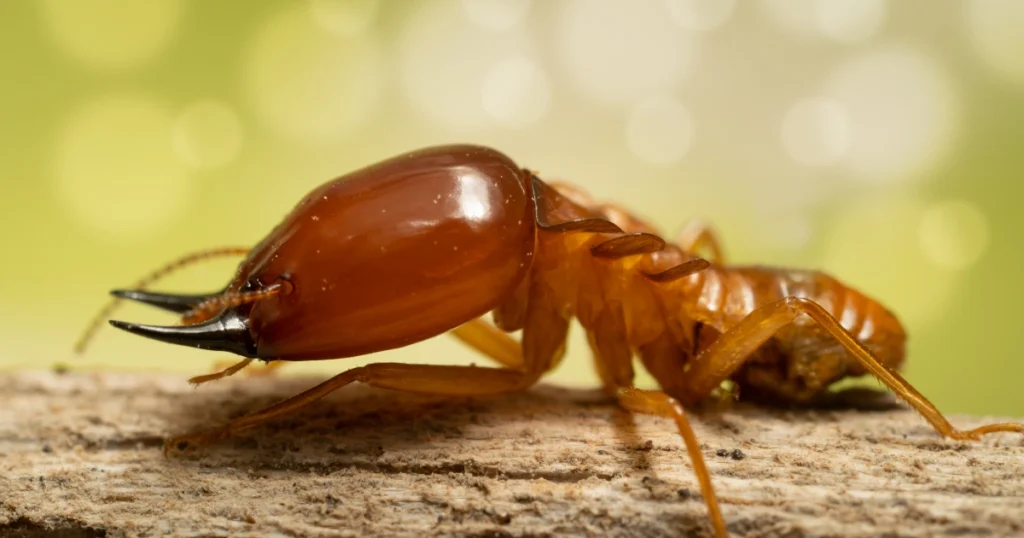
House termites pose a significant threat to residential structures. Awareness of different species, their lifecycle, and signs of infestation is essential for effective management.
Several termite species can infest homes, with Reticulitermes flavipes (Eastern subterranean termite) and Coptotermes formosanus (Formosan termite) being the most common in North America. Black house termites, recognized as Zootermopsis angusticollis, are also prevalent.
They typically measure between 1/4 to 1/2 inch, but their size may vary depending on the species and caste. House termites size differences make identification crucial, as some species cause more destruction than others. Termites are social insects living in colonies that can number in the millions. The workers are responsible for foraging, while soldiers protect the colony.
The termite lifecycle consists of three stages: egg, nymph, and adult. A queen can lay thousands of eggs daily. Initially, the eggs hatch into nymphs, which resemble smaller versions of adults.
As nymphs mature, they undergo several molts before assuming their adult roles. This stage can take a few months to several years, depending on environmental conditions.
Termites communicate through pheromones, playing a vital role in the colony's social structure and tasks. Their lifecycle is crucial to understanding their potential impact on buildings. If you see termites in your house, they may already be well into their reproductive stage, meaning the infestation could spread quickly.
Identifying a termite infestation early is critical. Key indicators include:
Additionally, homeowners may notice small piles of frass (termite droppings) near infested areas. Regular inspections can help in early detection and management of these pests. If termites are inside the house, you may also find weak wooden floors or walls that sound hollow when tapped.
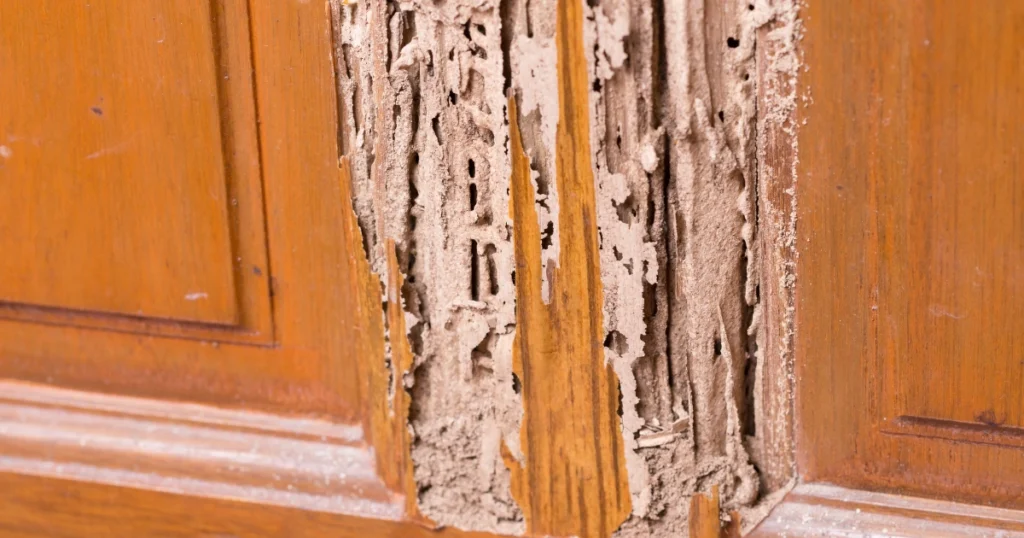
Termites are a significant concern for homeowners due to their widespread presence and ability to inflict damage. Understanding their prevalence and distribution helps in effective prevention and control strategies.
Termites are found in diverse locations, often favoring warm, humid environments. They thrive in areas with ample wood resources. Regions such as the southern United States experience higher termite activity, particularly in states like Florida, Louisiana, and Texas.
Temperate climates can also support termite populations, especially during the warmer months. Termites can infiltrate homes regardless of local climate if conditions are favorable, such as moisture and wooden structures.
Termite activity varies with the seasons. In warmer months, particularly spring and summer, termite swarming occurs. This is when reproductive termites leave their colony to establish new colonies, making this a peak time for infestations.
In colder months, termite activity slows down, but they do not hibernate. They tend to remain in their nests, feeding on wood. Homeowners should remain vigilant year-round, as termites can still cause damage even in winter. If you have termites in your house, seasonal shifts can impact their activity, but they will continue feeding on wooden structures regardless of the weather.
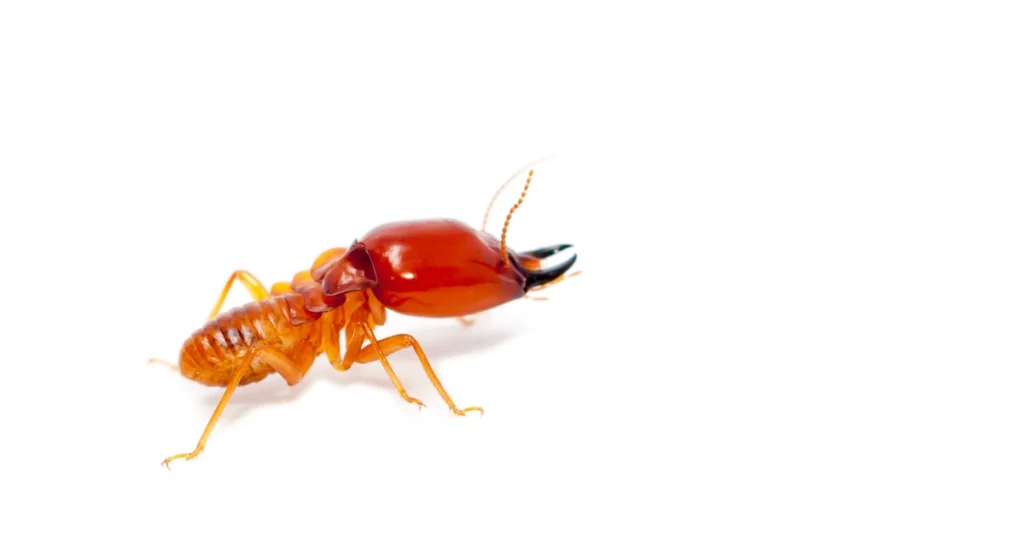
Identifying and assessing damage caused by termites is crucial for homeowners. This process involves evaluating the extent of damage and understanding its potential impact on the structure of the house.
The extent of termite damage varies significantly depending on the species and duration of infestation. Common signs include hollow-sounding wood, discarded wings, and mud tubes.
A thorough inspection can reveal:
What happens if you have termites in your house? Left unchecked, infestations can lead to severe damage that may require extensive repairs. Found termites in house walls or floors? Immediate professional inspection is advised.
Termite damage can seriously affect a house's structural integrity. Homes often rely on wooden frameworks, making them vulnerable to infestations.
Key areas to evaluate include:
If termites in my house are not addressed promptly, foundational weaknesses can result in costly and dangerous outcomes.
Identifying a termite infestation promptly is crucial for effective management. Various methods exist for detecting these pests, which can cause significant structural damage. These methods include professional inspections and do-it-yourself assessments, each with unique benefits.
Engaging a licensed pest control professional is often the most reliable option. These experts possess specialized tools and training to identify termite activity and damage accurately.
Homeowners can also conduct their own termite inspections. This process requires a keen eye and awareness of termite behavior and signs. Individuals should focus on:
Can you see termites in your house? In some cases, termites remain hidden, making professional inspections the safest approach for thorough detection. Critter Stop provides expert termite inspections and removal services, ensuring your home stays protected from these destructive pests. Contact them for a thorough assessment and customized treatment plan at 214-380-1667.
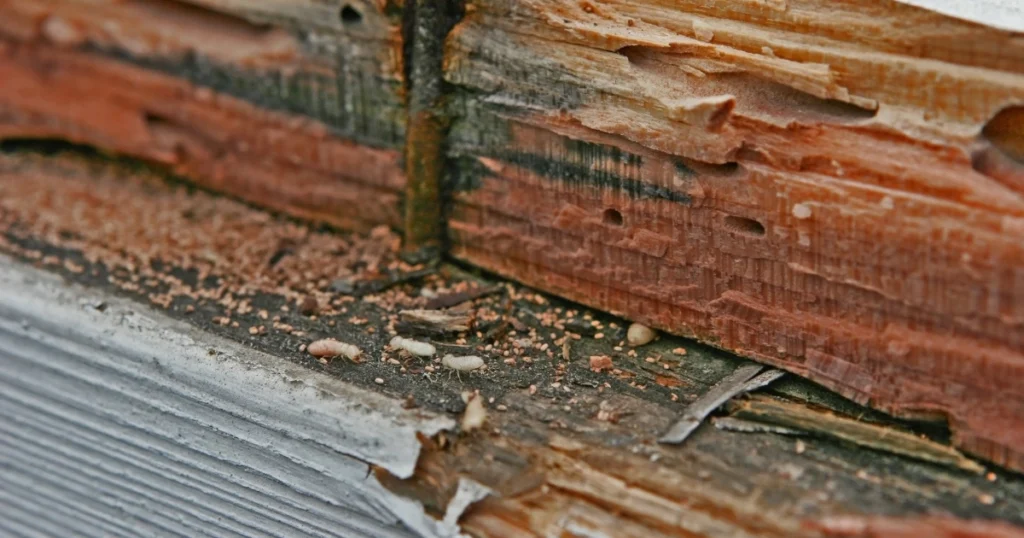
Frequently Asked Questions
Termites are usually hidden inside wood and walls, but swarmers may be visible near windows. If you see termites in your house, contact a professional immediately.
They feed on wood, weakening structures. What happens if you have termites in your house? Severe damage can occur if left untreated.
Look for hollow wood, mud tubes, discarded wings, or termite droppings. If you found termites in the house, get an inspection.
Avoid disturbing them and call a pest control expert. If you see termites in your house, act quickly to prevent further damage.
Reduce moisture, seal cracks, and keep wood away from your home. Regular inspections help keep termites in the house away.
Actual size house black termites range from 1/4 to 1/2 inch, depending on their caste. Workers are smaller, while swarmers and soldiers are larger. Identifying their size helps in recognizing an infestation.
It means a colony is nearby. If you see termites in your house, get an inspection to assess the severity.
They weaken wooden beams and floors. Severe cases may require major repairs.
DIY methods may help, but professional treatment ensures complete termite removal.
Persistent infestations need expert solutions like bait systems and moisture control.
This version keeps the FAQs concise while integrating all the required keywords naturally. Let me know if you need further adjustments!
To prevent termites house infestations, reduce moisture, seal cracks, and keep wood away from the foundation. Regular inspections help detect issues early before significant damage occurs.
Termites inside house can weaken wooden structures, causing costly repairs. Signs include hollow wood, mud tubes, and discarded wings. Early detection is crucial to prevent severe damage.
Visit our Critter Library and learn more about our furry friends